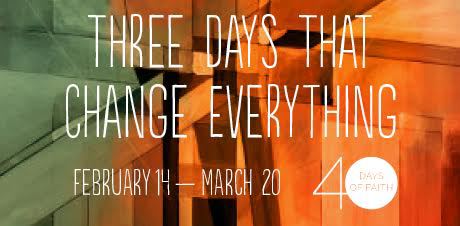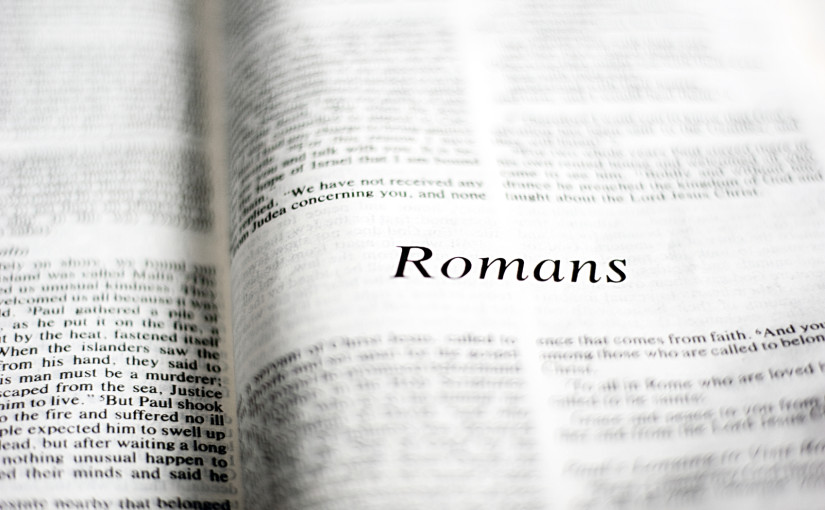Romans Recap
It’s been nice spending the past forty days in Romans with you. Personally, I’m ready to start again and travel through the text over the next forty days as well. But today, rather than fill your minds and ears with my commentary, we’ll simply recap some highlights of our journey through Romans. Below are sixteen short excerpts that capture some of the highlights and flow of Paul’s letter.
Romans 1:14-17
14I am a debtor both to Greeks and to barbarians, both to the wise and to the foolish 15—hence my eagerness to proclaim the gospel to you also who are in Rome. 16For I am not ashamed of the gospel; it is the power of God for salvation to everyone who has faith, to the Jew first and also to the Greek. 17For in it the righteousness of God is revealed through faith for faith; as it is written, “The one who is righteous will live by faith.”
Romans 3:21-26
21But now, apart from law, the righteousness of God has been disclosed, and is attested by the law and the prophets, 22the righteousness of God through faith in Jesus Christ for all who believe. For there is no distinction, 23since all have sinned and fall short of the glory of God; 24they are now justified by his grace as a gift, through the redemption that is in Christ Jesus, 25whom God put forward as a sacrifice of atonement by his blood, effective through faith. He did this to show his righteousness, because in his divine forbearance he had passed over the sins previously committed; 26it was to prove at the present time that he himself is righteous and that he justifies the one who has faith in Jesus.
Romans 4:13-17
13For the promise that he would inherit the world did not come to Abraham or to his descendants through the law but through the righteousness of faith. 14If it is the adherents of the law who are to be the heirs, faith is null and the promise is void. 15For the law brings wrath; but where there is no law, neither is there violation.
16For this reason it depends on faith, in order that the promise may rest on grace and be guaranteed to all his descendants, not only to the adherents of the law but also to those who share the faith of Abraham (for he is the father of all of us, 17 as it is written, “I have made you the father of many nations”)—in the presence of the God in whom he believed, who gives life to the dead and calls into existence the things that do not exist.
Romans 5:6-11
6For while we were still weak, at the right time Christ died for the ungodly. 7Indeed, rarely will anyone die for a righteous person—though perhaps for a good person someone might actually dare to die. 8But God proves his love for us in that while we still were sinners Christ died for us. 9Much more surely then, now that we have been justified by his blood, will we be saved through him from the wrath of God. 10For if while we were enemies, we were reconciled to God through the death of his Son, much more surely, having been reconciled, will we be saved by his life. 11But more than that, we even boast in God through our Lord Jesus Christ, through whom we have now received reconciliation.
Romans 6:5-11
5For if we have been united with him in a death like his, we will certainly be united with him in a resurrection like his. 6 We know that our old self was crucified with him so that the body of sin might be destroyed, and we might no longer be enslaved to sin. 7For whoever has died is freed from sin. 8But if we have died with Christ, we believe that we will also live with him. 9We know that Christ, being raised from the dead, will never die again; death no longer has dominion over him. 10The death he died, he died to sin, once for all; but the life he lives, he lives to God. 11So you also must consider yourselves dead to sin and alive to God in Christ Jesus.
Romans 8:1-2
There is therefore now no condemnation for those who are in Christ Jesus. 2For the law of the Spirit of life in Christ Jesus has set you free from the law of sin and of death.
Romans 8:18-23
18I consider that the sufferings of this present time are not worth comparing with the glory about to be revealed to us. 19For the creation waits with eager longing for the revealing of the children of God; 20for the creation was subjected to futility, not of its own will but by the will of the one who subjected it, in hope 21that the creation itself will be set free from its bondage to decay and will obtain the freedom of the glory of the children of God. 22We know that the whole creation has been groaning in labor pains until now; 23and not only the creation, but we ourselves, who have the first fruits of the Spirit, groan inwardly while we wait for adoption, the redemption of our bodies.
Romans 8:31-39
31What then are we to say about these things? If God is for us, who is against us? 32 He who did not withhold his own Son, but gave him up for all of us, will he not with him also give us everything else? 33 Who will bring any charge against God’s elect? It is God who justifies. 34 Who is to condemn? It is Christ Jesus, who died, yes, who was raised, who is at the right hand of God, who indeed intercedes for us. 35 Who will separate us from the love of Christ? Will hardship, or distress, or persecution, or famine, or nakedness, or peril, or sword? 36 As it is written,
“For your sake we are being killed all day long;
we are accounted as sheep to be slaughtered.”
37 No, in all these things we are more than conquerors through him who loved us. 38 For I am convinced that neither death, nor life, nor angels, nor rulers, nor things present, nor things to come, nor powers, 39 nor height, nor depth, nor anything else in all creation, will be able to separate us from the love of God in Christ Jesus our Lord.
Romans 9:1-5
9 I am speaking the truth in Christ—I am not lying; my conscience confirms it by the Holy Spirit— 2 I have great sorrow and unceasing anguish in my heart. 3 For I could wish that I myself were accursed and cut off from Christ for the sake of my own people, my kindred according to the flesh. 4 They are Israelites, and to them belong the adoption, the glory, the covenants, the giving of the law, the worship, and the promises; 5 to them belong the patriarchs, and from them, according to the flesh, comes the Messiah, who is over all, God blessed forever. Amen.
Romans 11:25-33
25 So that you may not claim to be wiser than you are, brothers and sisters, I want you to understand this mystery: a hardening has come upon part of Israel, until the full number of the Gentiles has come in. 26 And so all Israel will be saved; as it is written,
“Out of Zion will come the Deliverer;
he will banish ungodliness from Jacob.”
27 “And this is my covenant with them,
when I take away their sins.”
28 As regards the gospel they are enemies of God for your sake; but as regards election they are beloved, for the sake of their ancestors; 29 for the gifts and the calling of God are irrevocable. 30 Just as you were once disobedient to God but have now received mercy because of their disobedience, 31 so they have now been disobedient in order that, by the mercy shown to you, they too may now receive mercy. 32 For God has imprisoned all in disobedience so that he may be merciful to all.
33 O the depth of the riches and wisdom and knowledge of God! How unsearchable are his judgments and how inscrutable his ways!
Romans 12:1-2
12 I appeal to you therefore, brothers and sisters, by the mercies of God, to present your bodies as a living sacrifice, holy and acceptable to God, which is your spiritual worship. 2 Do not be conformed to this world, but be transformed by the renewing of your minds, so that you may discern what is the will of God—what is good and acceptable and perfect.
Romans 12:9-13
9 Let love be genuine; hate what is evil, hold fast to what is good; 10 love one another with mutual affection; outdo one another in showing honor. 11 Do not lag in zeal, be ardent in spirit, serve the Lord. 12 Rejoice in hope, be patient in suffering, persevere in prayer. 13 Contribute to the needs of the saints; extend hospitality to strangers.
Romans 13:8-10
8 Owe no one anything, except to love one another; for the one who loves another has fulfilled the law. 9 The commandments, “You shall not commit adultery; You shall not murder; You shall not steal; You shall not covet”; and any other commandment, are summed up in this word, “Love your neighbor as yourself.” 10 Love does no wrong to a neighbor; therefore, love is the fulfilling of the law.
Romans 15:1-6
15 We who are strong ought to put up with the failings of the weak, and not to please ourselves. 2 Each of us must please our neighbor for the good purpose of building up the neighbor. 3 For Christ did not please himself; but, as it is written, “The insults of those who insult you have fallen on me.” 4 For whatever was written in former days was written for our instruction, so that by steadfastness and by the encouragement of the scriptures we might have hope. 5 May the God of steadfastness and encouragement grant you to live in harmony with one another, in accordance with Christ Jesus, 6 so that together you may with one voice glorify the God and Father of our Lord Jesus Christ.
Romans 15:28-29
28 So, when I have completed this, and have delivered to them what has been collected, I will set out by way of you to Spain; 29 and I know that when I come to you, I will come in the fullness of the blessing of Christ.
Romans 16:16
16 Greet one another with a holy kiss. All the churches of Christ greet you.
Taking It Home:
For you – What has most struck you in your reading of Romans? Take a moment today to write down one of the larger insights or gifts that Jesus has given you. Ask God for help in remembering this and having it stick with you far beyond this season.
For your church, your 6, and your city: Pray for another Jesus movement in our own times, for the good news of Jesus to captivate and fill your church and to encourage your friends and your city as well.












